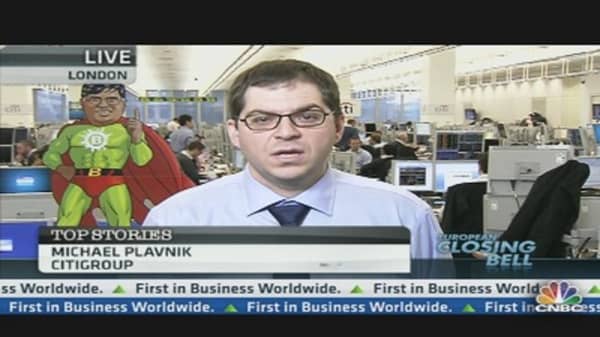If you're wondering why the British pound is sinking, get out your pencil. There is a whole list of reasons.
For starters, the Olympic era of good feelings is now history. "There is definitely some unwinding of the Olympic boost," says Michael Plavnik, head of short term interest rate trading at Citigroup.
There are policy reasons too, what Plavnik calls "the inability in the U.K. to generate growth."
Britain has been practicing fiscal austerity while other countries have been trying to spur growth, Plavnik told CNBC. "We've had sluggish growth here for the past several years just because it's been a very different approach that the government and monetary policy have taken."
(Read more: UK's Osborne: Wrong to Abandon Austerity Plan)
Certainly, the Bank of England has attempted to stimulate growth through quantitative easing - but it hasn't been enough to generate a sustainable recovery. Plavnik warns that "unless we see more stimulus in the economy we're not going to see probably even flat growth this year."





